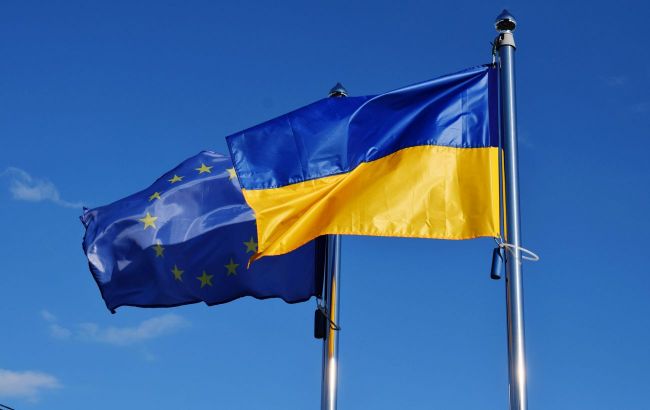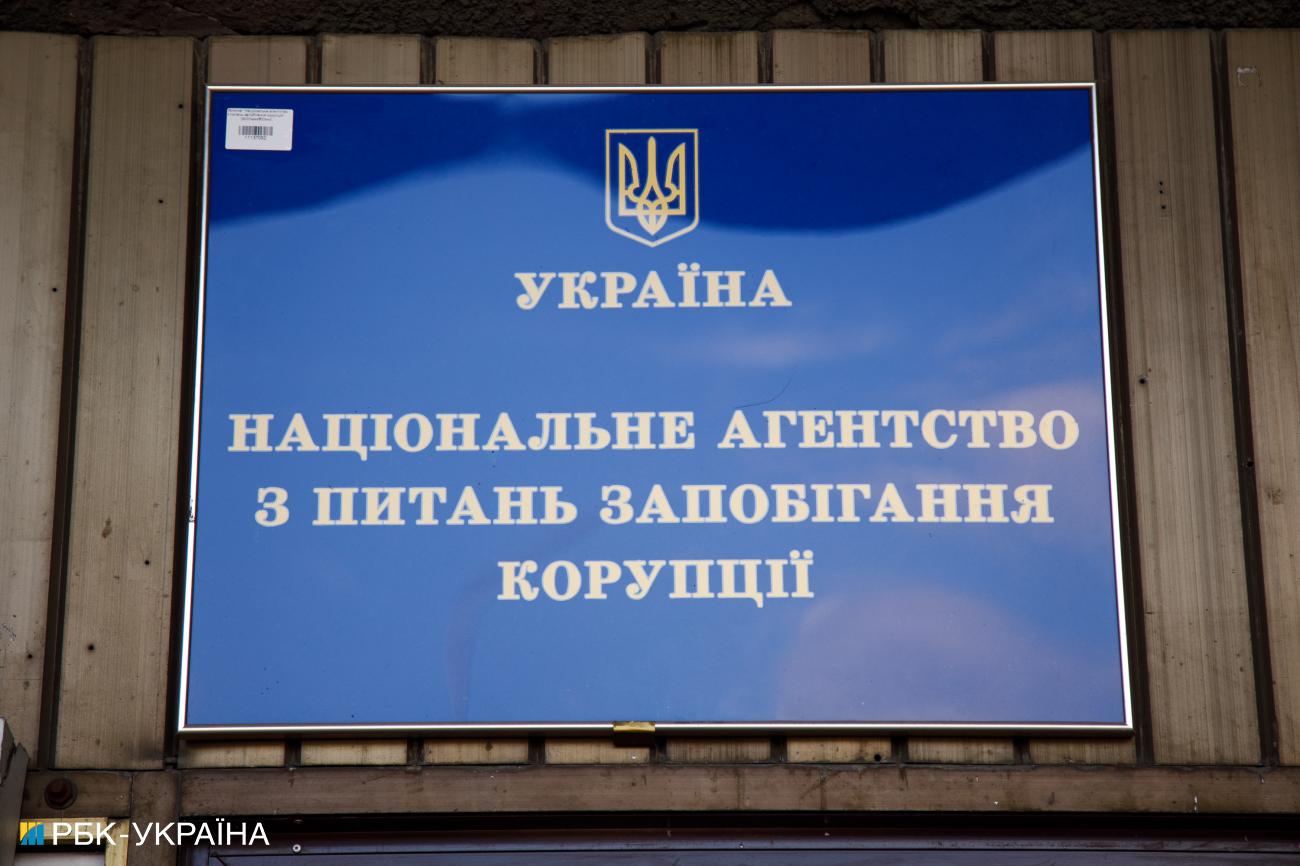Ukraine adopted four more laws to join EU: The conditions are fulfilled
 Ukraine has adopted laws required for EU accession (Photo: Getty Images)
Ukraine has adopted laws required for EU accession (Photo: Getty Images)
On Friday, December 8, the Ukrainian Parliament approved European integration bills on the activities of anti-corruption bodies. It also approved changes to legislation on the rights of national minorities. These steps are a prerequisite for the start of negotiations on Ukraine's accession to the EU.
Read more about each of the European integration laws and their key provisions in the RBC-Ukraine article below.
The texts and explanatory notes of the draft laws No. 10203-1, No. 10262, No. 10060, No. 10288-1, and the statement of Prime Minister Denys Shmyhal were used in the preparation of this article.
EU recommendations are taken into account
On December 8, the Ukrainian parliament voted in favor of several important legislative initiatives that the European Commission had insisted on. Among them:
- Draft Law No. 10203-1 to expand the staff of the National Anti-Corruption Bureau of Ukraine (NABU);
- Draft Law No. 10262, which allows the National Agency on Corruption and Prevention (NACP) to check the property of officials acquired before their appointment;
- Draft Law No. 10060 on strengthening the independence of the SAPO as a body subordinated to the Prosecutor General's Office;
- Draft Law No. 10288-1 on the protection of the rights of national minorities in certain areas, taking into account the recommendations of the Council of Europe.
All of these laws have already been signed by President Volodymyr Zelenskyy.
The laws were passed on the eve of the EU summit on December 14, where the issue of starting negotiations on Ukraine's membership is to be decided.
"Ukraine is rapidly moving towards the EU. We expect that next week the European Council will make a final decision on the start of official negotiations on Ukraine's membership in the European Union," Prime Minister Denys Shmyhal said following the vote in the Ukrainian Parliament.
Increase in NABU staff
According to the draft law on strengthening the institutional capacity of the NABU, the number of employees of the National Anti-Corruption Bureau of Ukraine should increase from 700 to 1000 people in 3 years - 100 detectives annually.
- from January 1, 2024 - by 100 people, including 10 civil servants;
- from January 1, 2025 - by 100 people, including 20 civil servants;
- from January 1, 2026 - by 100 persons, including 20 civil servants.
It is also planned to increase the number of senior officers from 500 to 750.

NABU detectives' staff will increase (Photo: facebook.com/nabu.gov.ua)
The implementation of the innovations "will strengthen the human resources of the National Anti-Corruption Bureau of Ukraine, which, in turn, will ensure increased efficiency and effectiveness in the detection and prevention of corruption crimes," the explanatory note to the law says.
Expanding the powers of the NACP
The NACP will be authorized to inspect property acquired by officials before they start their public service.
This is envisaged by the adopted draft law No. 10262 "On Amendments to the Law of Ukraine "On Prevention of Corruption".
The document took into account the recommendations of the European Commission's report of November 8, 2023, on Ukraine's progress in implementing reforms.
In particular, the EC emphasized the need to adjust certain provisions of the anti-corruption law - "to abolish restrictions on the NACP's powers to continue verification of assets that have already been verified and to verify property acquired by declarants before their appointment to a civil service position, without prejudice to the rules applicable to national security during martial law."

The NACP will check the wealth of officials before their appointment (Photo: Vitalii Nosach, RBC-Ukraine)
Strengthening the SAPO's independence
The reorganization of the Specialized Anti-Corruption Prosecutor's Office (SAPO) is one of the requirements of the European Commission and the International Monetary Fund. As previously noted by Prime Minister Denys Shmyhal, this is "one of the structural beacons of the cooperation program with the IMF" and part of the government's course to fight corruption systematically.
The bill No. 10060 was adopted:
- Separates the SAPO into an independent prosecutorial body - the SAPO receives the status of a legal entity under public law;
- defines the powers of the head of the SAPO with the status of Deputy Prosecutor General;
- improves the procedure for competitive selection of prosecutors and management;
- introduces new mechanisms of disciplinary control and external audit of the SAPO (to be conducted every 2 years).
The explanatory note states that the implementation of the law's provisions will strengthen the status of the head of the SAPO and his/her independence in decision-making, which will minimize the influence of the Prosecutor General, in particular, on the decision-making process of the head of the SAPO. In addition, it will help to fill the SAPO structure with professional and honest staff and will provide the possibility of creating a separate disciplinary commission for the SAPO.
Protecting the rights of national minorities
A law on the protection of national minority rights is among the key requirements of the European Union for Ukraine. Among the EU member states, Hungary was the most active advocate of the need for such a law. Budapest has repeatedly tried to criticize Kyiv for allegedly "infringing" on the rights of the Hungarian minority in Zakarpattia.
Law 10288-1 takes into account the expert opinion of the Council of Europe and its bodies on the rights of national minorities in certain areas:
Educational process
Privately owned higher education institutions have the right to freely choose the language of education, which is the official language of the EU. At the same time, persons studying at such institutions must be provided with the study of the state language as a separate academic discipline.
In classes with education in national minority languages, the right to use the language of the respective national minority in the educational process along with the state language is guaranteed.
Persons belonging to national minorities of Ukraine whose languages are official languages of the EU and who started receiving general secondary education before September 1, 2018, in the language of the respective national minority have the right to continue receiving such education until the completion of full general secondary education by the rules that existed before the entry into force of the new law.
The same rule applies to studying at basic secondary and specialized secondary education institutions.
.jpg)
The law protects the rights of minorities in education (Photo: Getty Images)
Publishing
It is allowed to distribute election campaign materials in the languages of the respective indigenous peoples and national minorities of Ukraine, duplicated in the state language.
The requirement to publish at least 50% of the titles of book publications per year in the state language does not apply to publishing products published in the Crimean Tatar language, other languages of indigenous peoples, or national minorities of Ukraine at the expense of the state and/or local budgets.
Media
For TV broadcasters that, in addition to broadcasting in the state language, broadcast exclusively in the languages of national minorities of Ukraine, programs in the state language must account for at least 30% of the total duration of programs (or parts thereof).
Without the threat of Russification
It is worth noting that the language provisions in the law on the protection of the rights of national minorities do not apply to Russian, the language of the country that was recognized by the Ukrainian Parliament as an aggressor state.
The document states that "restrictions on national minority languages that are the state (official) language of a state that has been recognized by the Ukrainian Parliament of Ukraine as an aggressor state or an occupying state are transferred from the final and transitional provisions of the laws of Ukraine to the body of the documents, and therefore will not have a time frame."
As a reminder, along with the EU candidate status, Ukraine received a list of conditions to be met to further advance on the path of European integration.
It is worth noting that on November 8, the European Commission recommended to the EU Council to start accession negotiations with Ukraine. According to EC President Ursula von der Leyen, Ukraine has already implemented 90% of the reforms expected by the EU, but Kyiv must continue to implement reforms.

